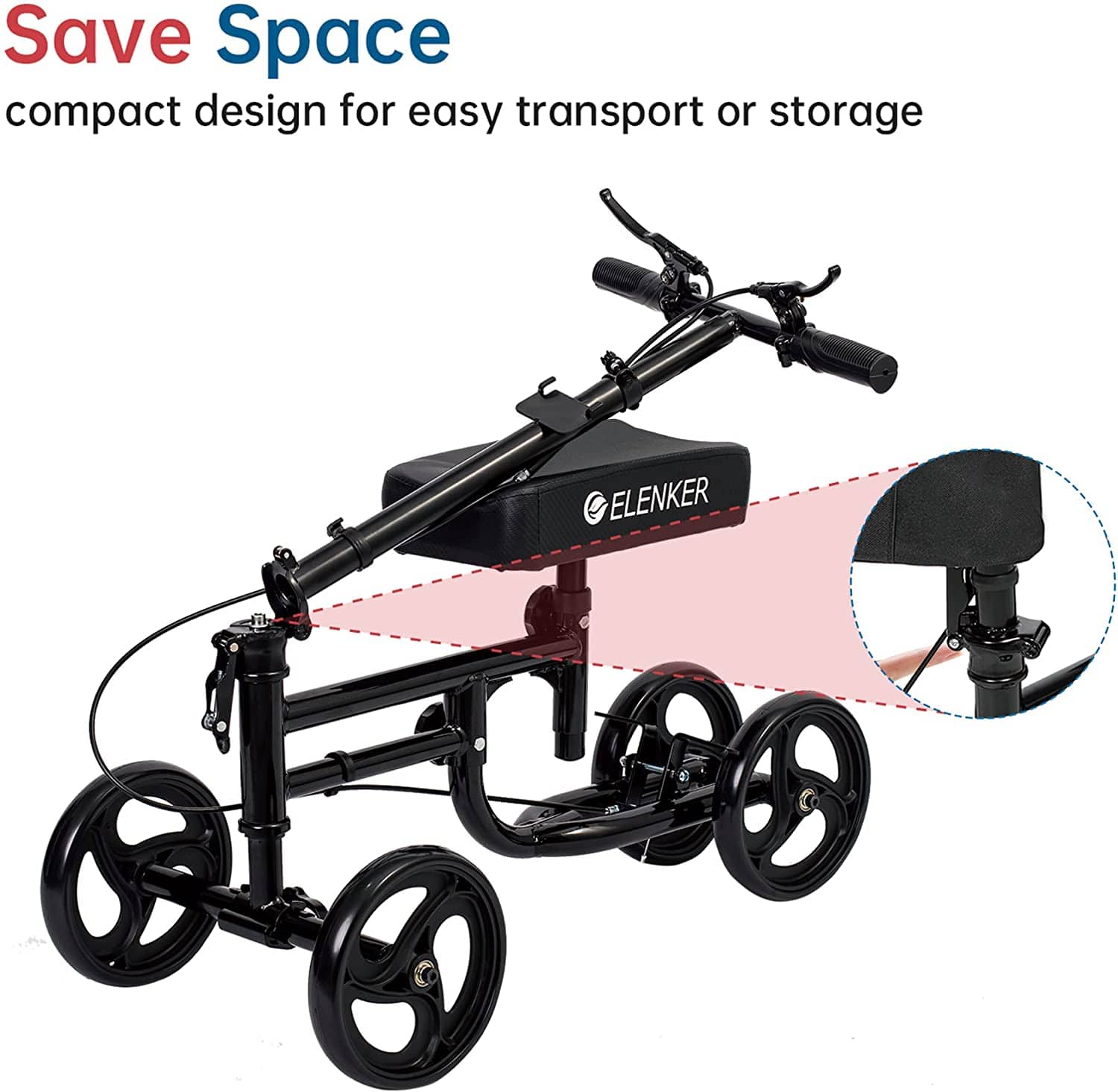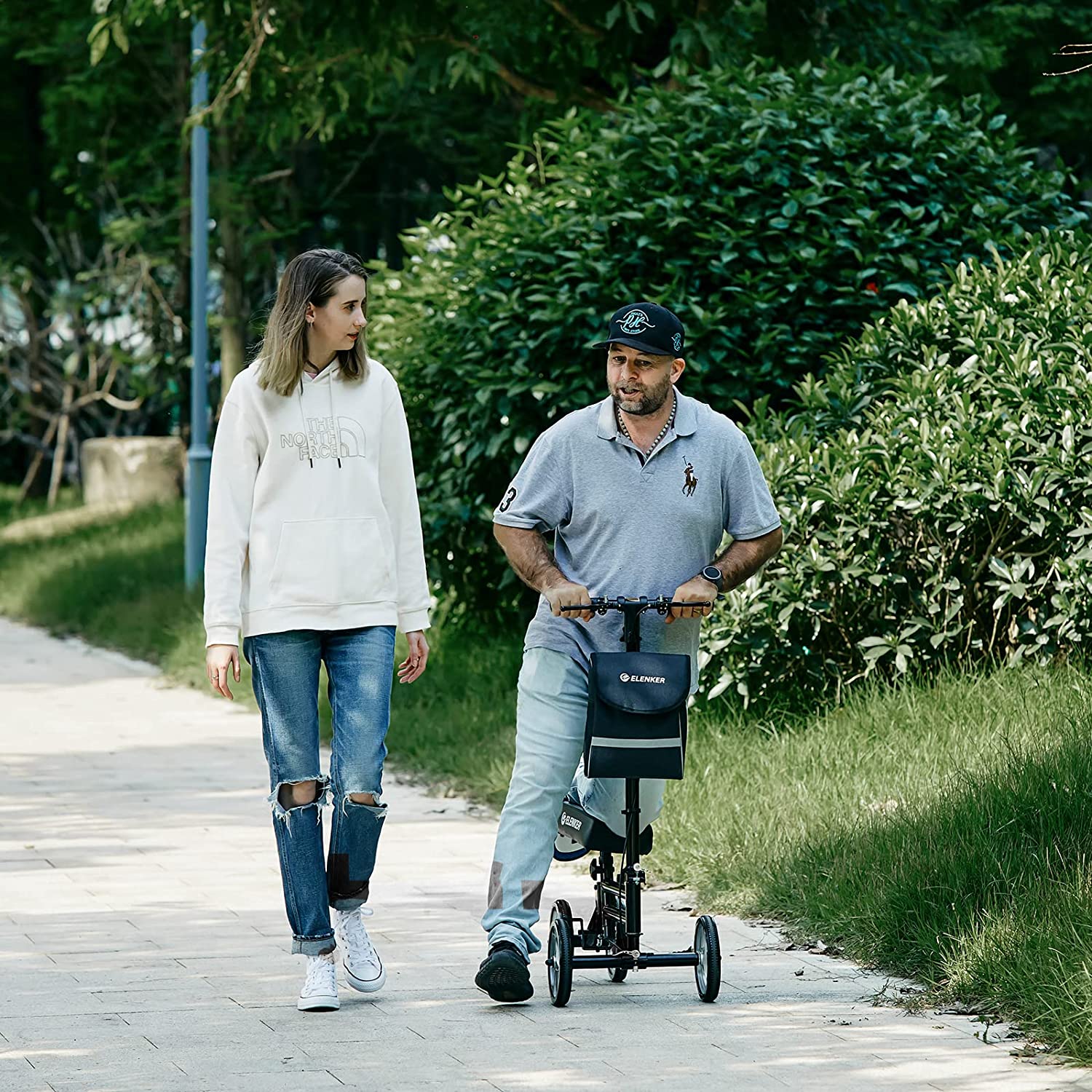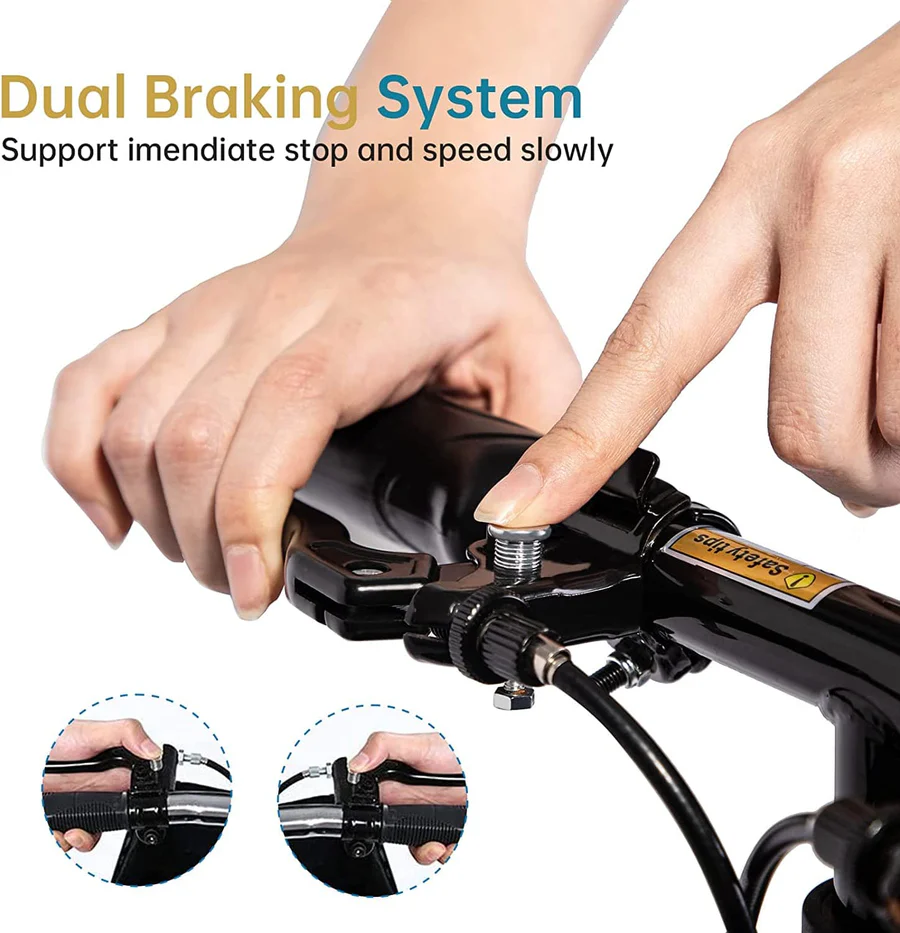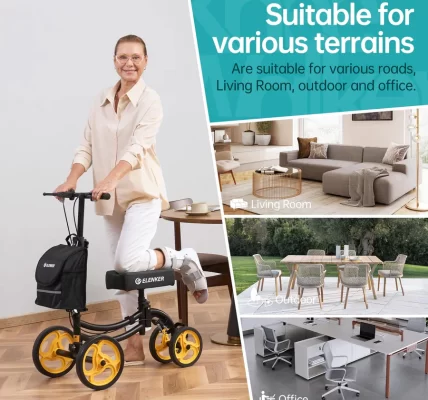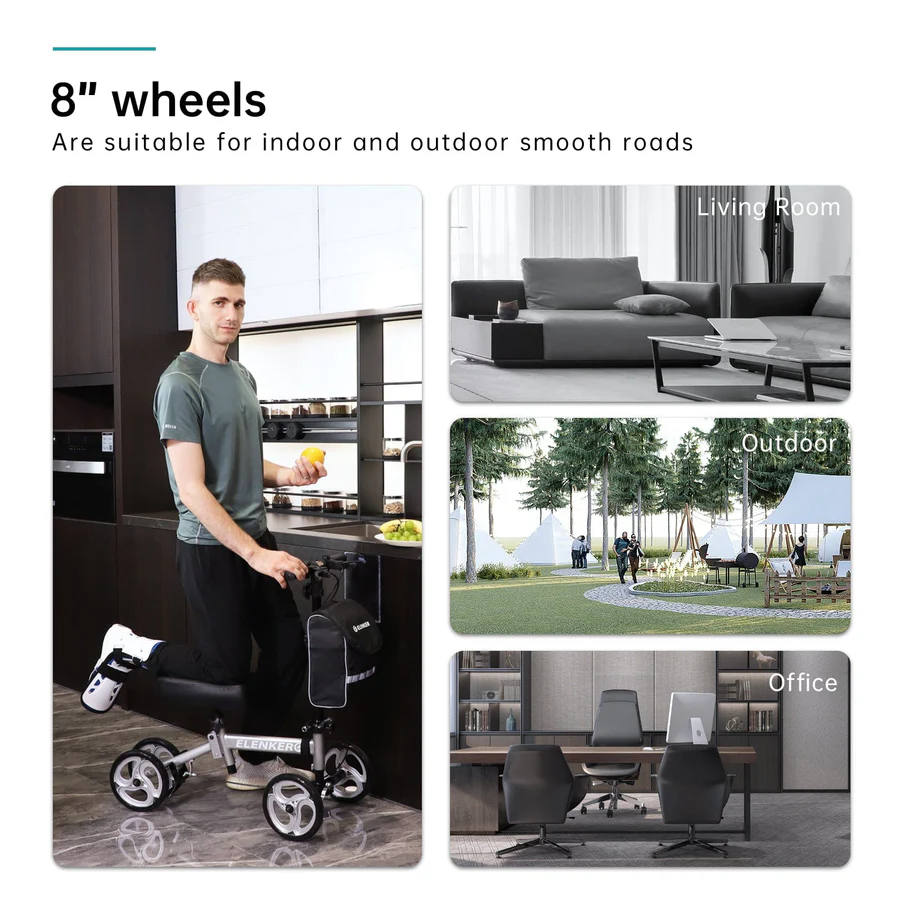If you’ve ever had a foot or ankle injury, you know how frustrating it can be to get around. Crutches can be a pain (literally), and hopping on one foot gets old fast. That’s where a knee walker (also called a knee scooter) comes in. It’s a game-changer for people dealing with lower leg injuries, but is it the right choice for everyone? Let’s break it down and see who can benefit most from using a knee scooter.
What Is a Knee Walker?
A knee walker is a mobility device designed to help people move around when they have a foot or ankle injury. It has a padded platform where you rest your injured leg, while your good leg pushes off the ground to move. Think of it as a scooter for a broken foot—it’s smooth, stable, and way more comfortable than struggling with crutches.
Brands like Elenker Scooter and Elenker Walker are popular choices, offering sturdy designs, adjustable handlebars, and brakes for safety. The best part? Many knee scooters come with storage baskets, so you can carry your essentials without juggling everything in your hands.
Who Should Use a Knee Walker?
A knee scooter isn’t for everyone, but it can be a lifesaver for the right people. Let’s look at who benefits the most from using one.
1. People with Foot or Ankle Injuries
If you’ve broken your foot, had ankle surgery, or suffered a serious sprain, a knee walker can be your best friend. Doctors often recommend non-weight-bearing mobility, which means you can’t put any pressure on your injured foot. A knee scooter helps you move without stressing your injury.
It’s a great option for:
✔ Broken foot or ankle – No more hopping around awkwardly.
✔ Achilles tendon injuries – Easier movement than crutches.
✔ Post-surgery recovery – Helps avoid putting weight on healing bones or stitches.
With a knee walker, you can still move around freely, whether at home, at work, or even outdoors.
2. People Who Struggle with Crutches
Crutches can be exhausting, especially if you’re using them for weeks or months. They put strain on your arms, shoulders, and even your back. Plus, if you have balance issues, crutches can feel unstable.
A knee walker provides a more stable and comfortable alternative. Instead of wobbling around on crutches, you can glide smoothly and confidently. If you’ve ever used crutches and felt sore after just a few minutes, a knee scooter might be a better option.
KGH-9161A ELENKER Steerable Knee Walker
3. Active People Who Need Mobility
If you’re someone who needs to stay on the move—whether for work, errands, or daily activities—a knee scooter is a great choice. Unlike crutches, which can slow you down, a knee walker lets you move quickly and easily.
Perfect for:
✔ People with busy jobs – If you need to move around at work, a scooter is much easier than crutches.
✔ Parents – Keeping up with kids on crutches? Nearly impossible. A knee walker makes it manageable.
✔ Students – Navigating campus is much easier on a scooter than crutches.
If you need to get things done without constantly stopping to rest, a knee scooter is a solid option.
4. Elderly Individuals Recovering from Injuries
For older adults, balance and stability are especially important. Crutches can be tricky, and the risk of falling is higher. A knee walker provides more security, reducing the chance of an accidental fall.
Seniors recovering from foot surgeries, fractures, or other injuries can benefit from using a knee scooter, especially one with extra stability features like wider wheels and hand brakes.
5. People with Temporary Mobility Issues
Even if your injury is temporary, a knee walker can make your recovery much smoother. Some people only need mobility assistance for a few weeks or months, but even a short time on crutches can feel like forever.
If you want to keep your independence and avoid the hassle of crutches, renting or buying a knee scooter can be a smart choice.
Who Should NOT Use a Knee Walker?
While knee scooters are great for many people, they aren’t right for everyone. Here are some cases where a knee walker might not be the best choice.
1. People with Knee or Hip Problems
To use a knee walker, you need to bend one knee and rest it on the scooter. If you have knee pain, arthritis, or hip issues, this position might be uncomfortable. In that case, a walker or wheelchair may be a better alternative.
2. People with Injuries to Both Legs
A knee scooter works great if only one leg is injured. But if you have injuries to both legs, you won’t have a “good leg” to push off with. In this situation, a wheelchair or another mobility aid may be necessary.
3. People Who Need to Use Stairs Frequently
If you live in a home with lots of stairs, a knee walker might not be practical. Unlike crutches, which you can carry up and down, a scooter is bulkier. If you frequently need to go up and down stairs, you may need a combination of mobility aids—such as crutches for stairs and a knee walker for flat surfaces.
How to Use a Knee Walker Properly
If you decide a knee scooter is right for you, here are some tips to use it safely and comfortably.
Adjust it to your height – The handlebars and knee pad should be at a comfortable level.
Keep your injured leg centered – Make sure your knee is resting securely on the pad.
Use the brakes – Most scooters have hand brakes. Use them when needed, especially on slopes.
Push with small steps – Don’t try to move too fast; steady, small pushes will keep you balanced.
Be cautious on uneven surfaces – Some scooters work well outdoors, but avoid rough or uneven ground if your scooter isn’t designed for it.
Is a Knee Walker Right for You?
A knee walker is an excellent alternative to crutches for many people recovering from foot or ankle injuries. Whether you have a broken foot, ankle surgery, or another non-weight-bearing condition, a knee scooter can make life a lot easier.
If you’re active, need to move around efficiently, or struggle with crutches, a knee walker (like an Elenker Scooter) could be the perfect solution. Just make sure your injury and mobility level are suitable for using one.
For those who can’t use a knee walker due to knee issues, balance problems, or frequent stair use, other mobility aids like Elenker walkers or wheelchairs might be a better fit.
At the end of the day, it’s all about finding what works best for your recovery. A knee walker can help you stay mobile, independent, and comfortable while you heal—no more struggling with crutches or hopping around awkwardly. Sounds like a win, right?
